India's strikes kill 26 in Pakistan, raising war fears between nuclear neighbors
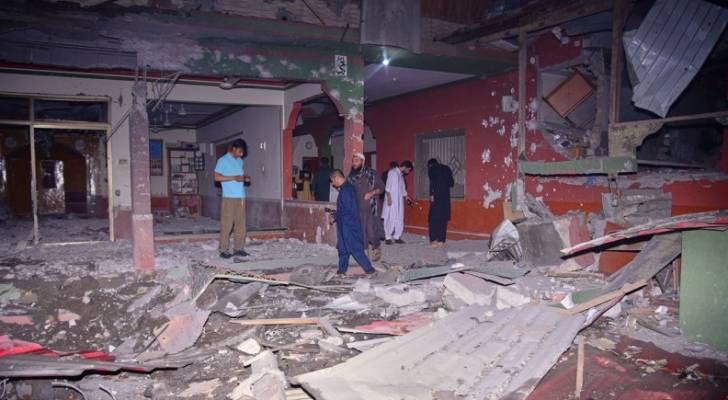
Roya News
On Wednesday, May 7, 2025, India launched missile strikes targeting what it described as “terrorist infrastructure” in Pakistan and Pakistan-administered Kashmir, prompting a fierce response from Islamabad and raising fears of a broader conflict between the two nuclear-armed neighbors.
The strikes, dubbed “Operation Sindoor” by India, were a retaliation for a militant attack on April 22, 2025, in Indian-administered Kashmir, where gunmen killed 26 tourists and injured a dozen others in the scenic valley of Baisaran, Pahalgam.
Pakistan, denying involvement in the attack, reported significant civilian casualties and vowed a robust retaliation, describing India’s actions as “an act of war.”
Strikes details
India’s Ministry of Defense stated that the strikes targeted nine sites linked to militant groups Jaish-e-Mohammed, Lashkar-e-Taiba, and Hizbul Mujahideen, with four locations in Pakistan’s Punjab province— including Bahawalpur and Muridke—and five in Pakistan-administered Kashmir, such as Muzaffarabad, Kotli, and Bagh.
The Indian Air Force, Army, and Navy conducted the operation jointly, marking the first such coordinated effort since the 1971 India-Pakistan war. Indian officials emphasized that the strikes were “focused, measured, and non-escalatory,” avoiding Pakistani military installations to prevent a wider conflict.
Foreign Secretary Vikram Misri claimed the operation was based on intelligence indicating imminent cross-border attacks, underscoring India’s intent to “pre-empt and deter” further terrorism.
Pakistan, however, reported a starkly different outcome. Lieutenant General Ahmed Sharif Chaudhry, a spokesperson for Pakistan’s military, stated that the strikes killed at least 26 civilians, including women, children, and a three-year-old girl, and injured 46 others. Among the casualties were the sister of Jaish-e-Mohammed chief Masood Azhar and her family, according to Indian sources.
Pakistani authorities claimed the strikes hit civilian areas, including a mosque in Muzaffarabad, and described the attacks as a “blatant act of war.” Pakistan’s Prime Minister Shehbaz Sharif condemned the strikes, promising a “decisive response” and suspending participation in the 1972 Simla Agreement, which governs the Line of Control (LoC) dividing Kashmir.
Escalation, retaliation
Following India’s strikes, Pakistan reported retaliatory actions, including artillery fire across the LoC, which Indian officials said killed at least 10 people and injured 48 in Indian-administered Kashmir.
Pakistan claimed to have shot down five Indian Air Force jets, a claim unconfirmed by India or independent sources and met with skepticism due to the lack of corroborating evidence. Both nations have heightened military alertness, with India shutting down Srinagar airport for civilian operations and Pakistan closing over 1,000 religious schools in its administered Kashmir out of fear of further strikes.
The exchange of fire along the LoC, coupled with missile tests conducted by Pakistan on May 3 and May 5, 2025, has intensified concerns about escalation. Pakistan’s ballistic missile test on May 3 was described as a signal of readiness amid intelligence suggesting an imminent Indian strike. India, meanwhile, conducted naval missile tests days before Operation Sindoor to demonstrate its long-range precision strike capabilities.
Historical context, rising tensions
The current escalation echoes previous India-Pakistan conflicts over Kashmir, a disputed region both nations claim in full but administer in parts. In 2016, India conducted “surgical strikes” across the LoC after 19 soldiers were killed in Uri, and in 2019, Indian airstrikes targeted alleged militant camps in Balakot, Pakistan, following a suicide bombing in Pulwama that killed 40 Indian troops. Both incidents saw limited retaliation but avoided full-scale war. The 2025 Pahalgam attack, the deadliest on civilians in Kashmir in over a decade, has reignited accusations from India that Pakistan supports militant groups, a charge Islamabad consistently denies.
Diplomatic relations have deteriorated sharply. India suspended its participation in the 1960 Indus Waters Treaty, barred Pakistani aircraft from its airspace, and expelled diplomats. Pakistan reciprocated with visa suspensions and airspace restrictions. The rhetoric from both sides has been uncompromising, with Indian Prime Minister Narendra Modi granting the military “full operational freedom” and Pakistan’s Chief of Army Staff General Syed Asim Munir emphasizing “heightened vigilance and proactive readiness.”
International reactions, economic impact
The international community has urged restraint to prevent a nuclear confrontation. United Nations Secretary-General Antonio Guterres expressed deep concern, calling for “maximum military restraint” and offering to mediate de-escalation efforts.
US President Donald Trump described the strikes as “a shame,” while Secretary of State Marco Rubio echoed hopes for a swift resolution. China, a key ally of Pakistan, labeled India’s actions “regrettable” and urged both sides to prioritize peace.
Economically, the conflict threatens Pakistan’s fragile recovery. Moody’s warned that sustained escalation could hamper Pakistan’s fiscal consolidation and macroeconomic stability, while India’s economy, with minimal trade ties to Pakistan, is expected to remain largely unaffected. Major airlines, including those from the US and Europe, have begun avoiding Pakistani airspace, disrupting global travel routes.
Civilian impact, humanitarian concerns
In Pakistan-administered Kashmir, residents reported fleeing to hills during the strikes, with damage to civilian infrastructure, including a mosque and rural sites. In India, mock drills in over 200 cities have been conducted to prepare for potential nuclear or conventional attacks, reflecting heightened public anxiety. Educational institutions in Kashmir’s Baramulla, Kupwara, and Gurez regions were closed on May 7, and cultural exchanges between India and Pakistan have halted.
Experts suggest the trajectory of the conflict hinges on Pakistan’s response. While Pakistan’s leadership has historically shown restraint to avoid full-scale war, retaliatory strikes are anticipated. Military analysts note that both nations possess advanced arsenals—India with BrahMos cruise missiles and Agni ballistic missiles, and Pakistan with Chinese-supplied J-10 fighters and medium-range missiles—raising the stakes of any escalation. The absence of robust crisis communication mechanisms, as highlighted by Pakistan’s former National Security Adviser, increases the risk of miscalculation.
Latest News
-
 India's strikes kill 26 in Pakistan, raising war fears between nuclear neighbors
India's strikes kill 26 in Pakistan, raising war fears between nuclear neighbors
-
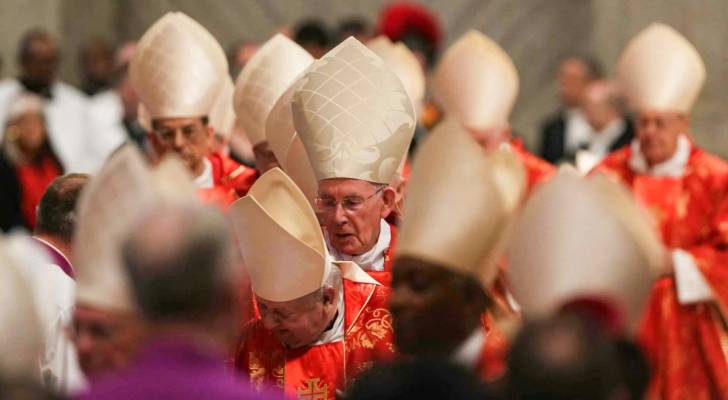 Final prayers, reflection before conclave begins in Vatican
Final prayers, reflection before conclave begins in Vatican
-
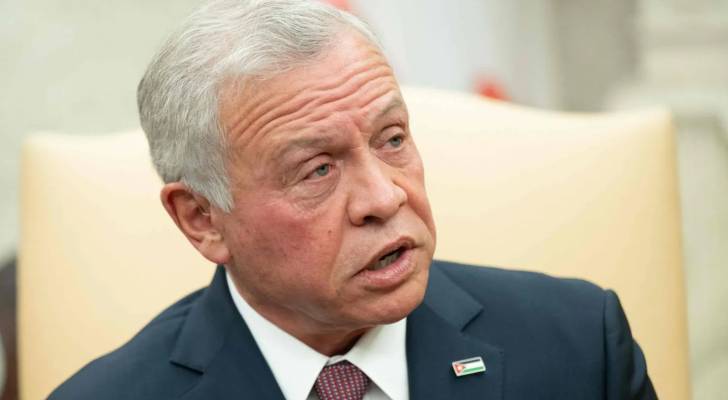 King begins series of Capitol Hill meetings in US visit
King begins series of Capitol Hill meetings in US visit
-
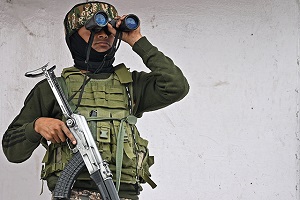 India says its missiles hit sites in Pakistan and Pakistan-controlled Kashmir
India says its missiles hit sites in Pakistan and Pakistan-controlled Kashmir
-
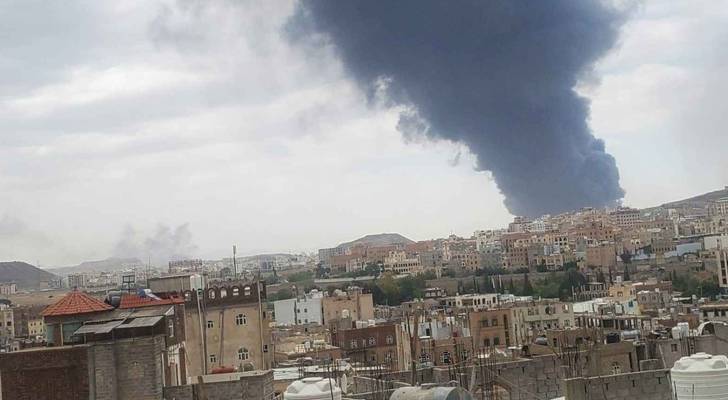 'Israel' bombs 10 sites across Yemen, including Sanaa airport
'Israel' bombs 10 sites across Yemen, including Sanaa airport